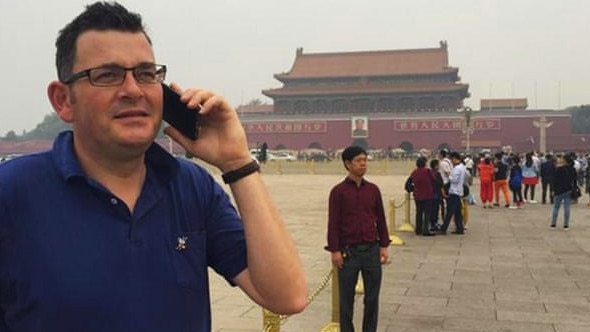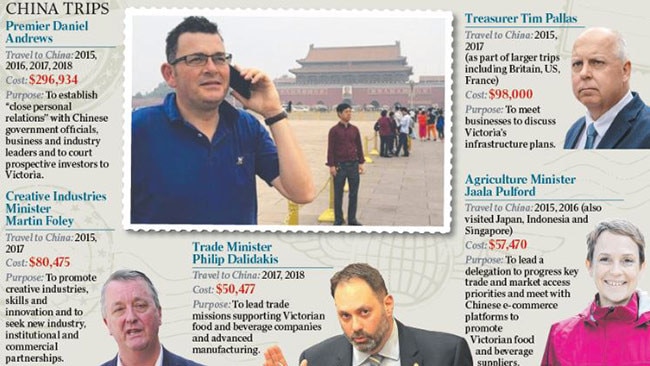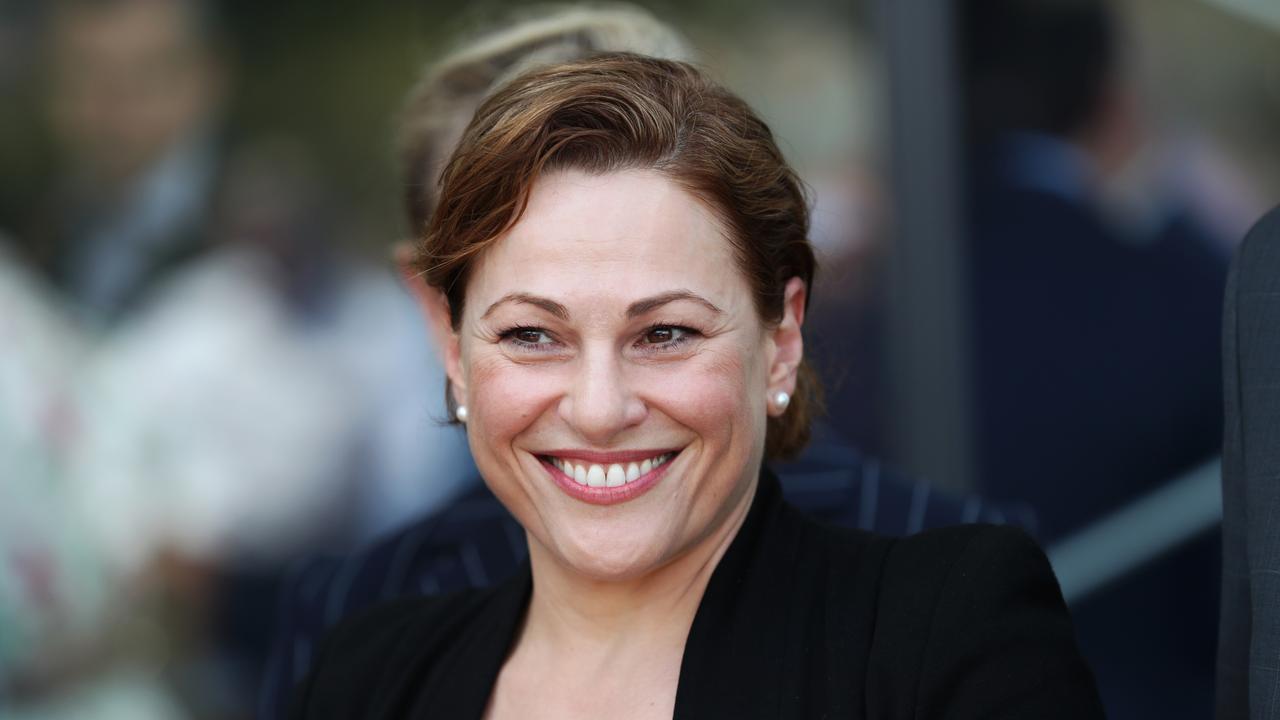Victorian election: Labor MPs clock up 25-plus visits to China
Victorian Labor MPs have travelled to China at least 25 times in the past four years, racking up close to $1 million in bills.

Victorian Labor MPs have gone to China at least 25 times over the past four years, racking up close to $1 million in travel bills as part of Premier Daniel Andrews’s pursuit of closer ties with the communist nation.
Since Labor’s 2014 election victory, Mr Andrews has made no secret of his desire to court China as a trade, education and cultural partner, and has personally led four delegations there at a cost of almost $300,000 to taxpayers.
“As Premier, I am committing to visiting China every year and will also ensure that my ministers are frequent visitors,” he said after embarking on his first 10-day visit in 2015. Since then, Victorian Treasurer Tim Pallas, Creative Industries Minister Martin Foley, Trade Minister Philip Dalidakis and Agriculture Minister Jaala Pulford have each travelled to China twice, while a further 11 cabinet ministers have also undertaken official visits to China, taking in Beijing, Shanghai, Nanjing, Shenzen and Hong Kong.

Victorian Labor’s close relationship with China is in the spotlight in the wake of the state government’s decision to enter into a memorandum of understanding with Beijing for its ambitious but contentious Belt and Road Initiative, putting it at odds with the federal government, which has not signed up.
The signature project of President Xi Jinping, the BRI represents more than $1.8 trillion of investment to create modern transit and trade corridors between China, Africa and Europe along the historic Silk Road.
So far, 68 countries including New Zealand have signed up, keen to get a slice of the investment opportunities available, despite concerns that the project is a blatant push by China for greater influence in global affairs.
Announcing the MoU late last month, Mr Andrews said that the landmark agreement recognised the close relationship between the state and China, the result of dedicated engagement at all levels of government.
That engagement is detailed in dozens of travel reports filed over the past four years that detail ministers’ meetings with senior Chinese government officials, industry chiefs, business executives, investors and prospective investors, trade delegations, official dinners, tours of schools, hospitals and research labs, and a visit to a panda breeding facility.
Mr Andrews’s report into his September 2015 China trip, when he was joined by MP Marsha Thomson and multicultural adviser Marty Mei, who has been linked to China’s influential United Front organisation, reveals he sought out senior government and industry figures to consult on the government’s proposed China strategy.
Released six months later, the strategy’s overriding goal was for Victoria to become “China’s gateway to Australia based on the strength of our connections and the depth of our understanding of each other’s people, culture and economic needs”.
In May last year, Mr Andrews was back in China as “the only subnational leader from Australia to attend the Belt and Road Forum for International Co-operation in Beijing”.
The high-profile event, hosted by Mr Xi, was attended by more than 1500 delegates from 130 countries, including heads of the UN, the World Bank and the International Monetary Fund.
While there, Mr Andrews spoke at a session on infrastructure connectivity, showcasing Victoria’s strengths in engaging with China, public-private partnerships and infrastructure design and delivery.
Mr Andrews denied yesterday that his government faced undue influence from China.
“No, that’s complete nonsense,” he said.


